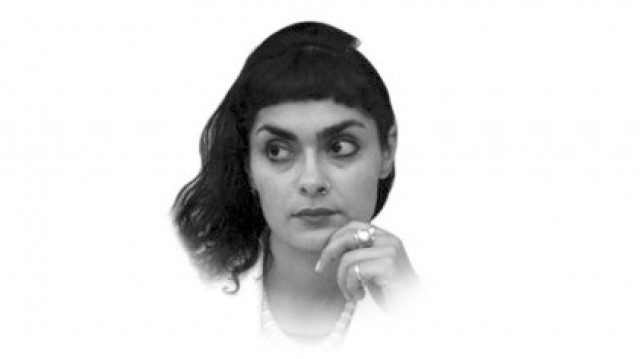Pride and prejudice

Pride and prejudice
Just when Muslims everywhere, and in particular Pakistanis, thought they could breathe a sigh of relief, stop looking over their shoulders in the streets of New York, or if carrying a backpack on the London underground, there we are back in the public eye and the glare is one of animosity.
Pakistanis have already had to cope with an unabated wave of changes in immigration laws. Students, holidaymakers and professionals have been steadily denied visas to in recent years. A well-known comedian from Karachi was refused a visa to perform in the Australian Comedy Festival in which he would have been the sole Pakistani representative.
In 1999, when the prospect of a new millennium was upon us, promises were made of an expansive world where we would become interchangeable citizens of a new global economy and ‘globalisation’ became a buzz word. The decade that followed however, has seen not an expansion for citizens of the world, or increased mobility and freedoms, but rather restrictions and a closing of borders unlike anything ever experienced before. In the headlines of the last few days we were made to quake in our boots by Hillary Clinton with her threat of ‘severe consequences’, had the botched-up terrorism of Faisal Shahzad been an ounce more sophisticated, and effective.
One can only wonder what these consequences could possibly be to make them more severe than the treatment of Pakistan and Pakistanis now. This last week has seen the Conservatives almost certainly become the ruling one in the UK. This is a party whose immigration policies are next to no policy at all, simplistically: don’t let them in. Get the ones who are there out, or at least make their lives very difficult.
A Catch-22 arises. Each and every person, family, tribe, country has a right to protect their own. The pragmatic thought is: how can we blame these countries? They see us as a threat so they want to keep us out. After all, it is our ‘own,’ out there giving us a bad name. However, these terrorists also believe they are protecting something, by their actions and so the pragmatic line of reasoning fails entering into an unending loop.
There has never been a better time than now for Pakistanis everywhere to decide who exactly we are, and what we want to project and in so doing distance ourselves from all other ‘versions’ of ourselves out there. This is a process that started post 9/11, and now needs to continue more urgently. We may not know who the Faisal Shahzads out there are, or be able to control them but we can do our best to remove ourselves from their politics and their ideology using the only means that is available to us freely: technology. We may feel powerless, but with our words, our images, our art, our music, and with the creation of a strong counter-culture we can empower ourselves towards the dream of greater freedoms in the future.
Published in the Express Tribune, May 12th, 2010.















COMMENTS
Comments are moderated and generally will be posted if they are on-topic and not abusive.
For more information, please see our Comments FAQ